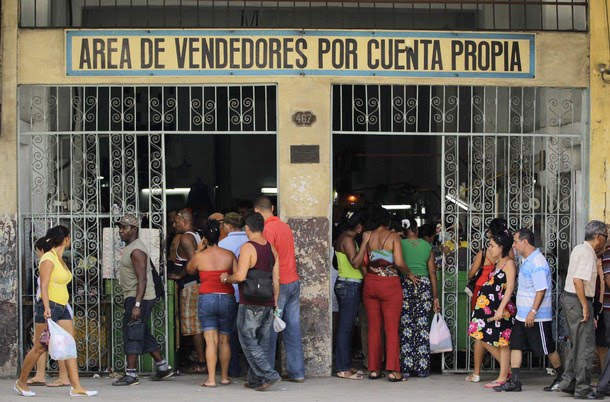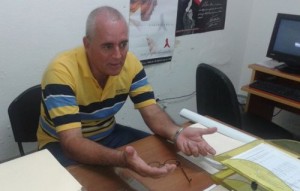
From numbers to food, Cuba’s economy topic of discussion
CIENFUEGOS, Cuba — “People talk about the growth of the nation’s economy, but I would like to know if something has been planned to improve the people’s economy.” Thus begins a dialogue between a radio listener and a professor of economics in a popular program broadcast in Cuba’s south-central region.

Inviting Cubans to talk about finance almost always leads them to sidestep macrostructural explanations. What’s important is what reaches the dining-room table and people’s wallets. Cubans are little interested in the variations in the Gross Domestic Product or the handling of commodity circulation — even if those subjects are vital.
“At this time, the economy is not giving any signs that the national currency will appreciate,” answers Dr. Francisco Pérez Rosado, doctor of science and professor at the Carlos Rafael Rodríguez University in Cienfuegos. With those words, he brings reality to any illusion the listener might have harbored.
“For the Cuban peso to rise in value, we must first see growth in economic efficiency, exports, labor productivity and the volume of hard currency in the nation’s reserve. And those conditions don’t exist today in an economy that grew less than planned,” he explains, completing the lesson.
“Without studying economics, we’ll know the moment when the currency rises in value,” says the doctor, who offers tips to predict the hoped-for moment when prices go down or wages go up.
“If you see a market that’s supplied systematically with leading products that don’t disappear, then that’s the moment when commodity circulation demands liquidity and therefore the wages can be raised or the currency can be appreciated by lowering the prices,” Pérez says.
“But as long as a ‘leading’ product, such as roasted chicken, appears at the grocery store and is sold out within an hour, we cannot think that the economy is a condition to back any appreciation.”
To the university professor, it is better to raise the purchasing power of the national currency than to apply a wage reform throughout the economy.
“Until growth with real impact on the country is achieved, growth beyond 7 percent — in 2013, it was 2.6 percent — the most that can happen will be slight wage increases in some specific sectors, like Health or Education, which have been repeatedly mentioned recently. But only there,” Pérez says.
The new investment law that will be approved in March by the National Assembly, and the establishment of the Mariel Development Zone are raising much expectation in the country, although, in Pérez’s opinion, agriculture is the most immediate way to overcome Cuba’s problems. However, he points out, the agriculture will not improve until it undergoes a top-to-bottom reform.
“The first thing to do is to pay the producer at market prices. When we study the world’s agriculture, we see that the small and medium producers go out of their way to sell to the state, while here we have to round up the producers and coax them to sell to the state.”
“Look at the case of milk,” Pérez suggests. “State-owned dairies buy each liter of low-quality fresh milk for 1.90 Cuban pesos (CUP) and top-quality milk for 2.60 CUP. However, a private maker of yogurt pays 5 CUP per liter, regardless of the quality standard.”
“What happens? Well, the dairy farmers don’t abide by their contracts with the state and the state has to buy powdered milk in New Zealand for 6,000 dollars a ton. If we do the math, we see that the state pays 15 CUP per liter to a Kiwi dairy farmer, not a Cuban one,” the professor says.
“Sometimes, the decision-makers justify themselves by saying that we don’t have that kind of money. Then, what does it look like, when it endangers the delivery [of milk] to children and sick people? Obviously, it’s a problem of mindset,” he says.
“The economy of the state is the economy of the people. That’s the essence of socialism,” the Cienfuegos native says. After answering other questions on the open mike (the price of tomatoes, the income of retirees) he repeats that, if inefficiency persists in the state-run productive apparatus, it will be hard to expect people to identify with the government.
Numbers are one thing; the food on the table is another, he notes.

